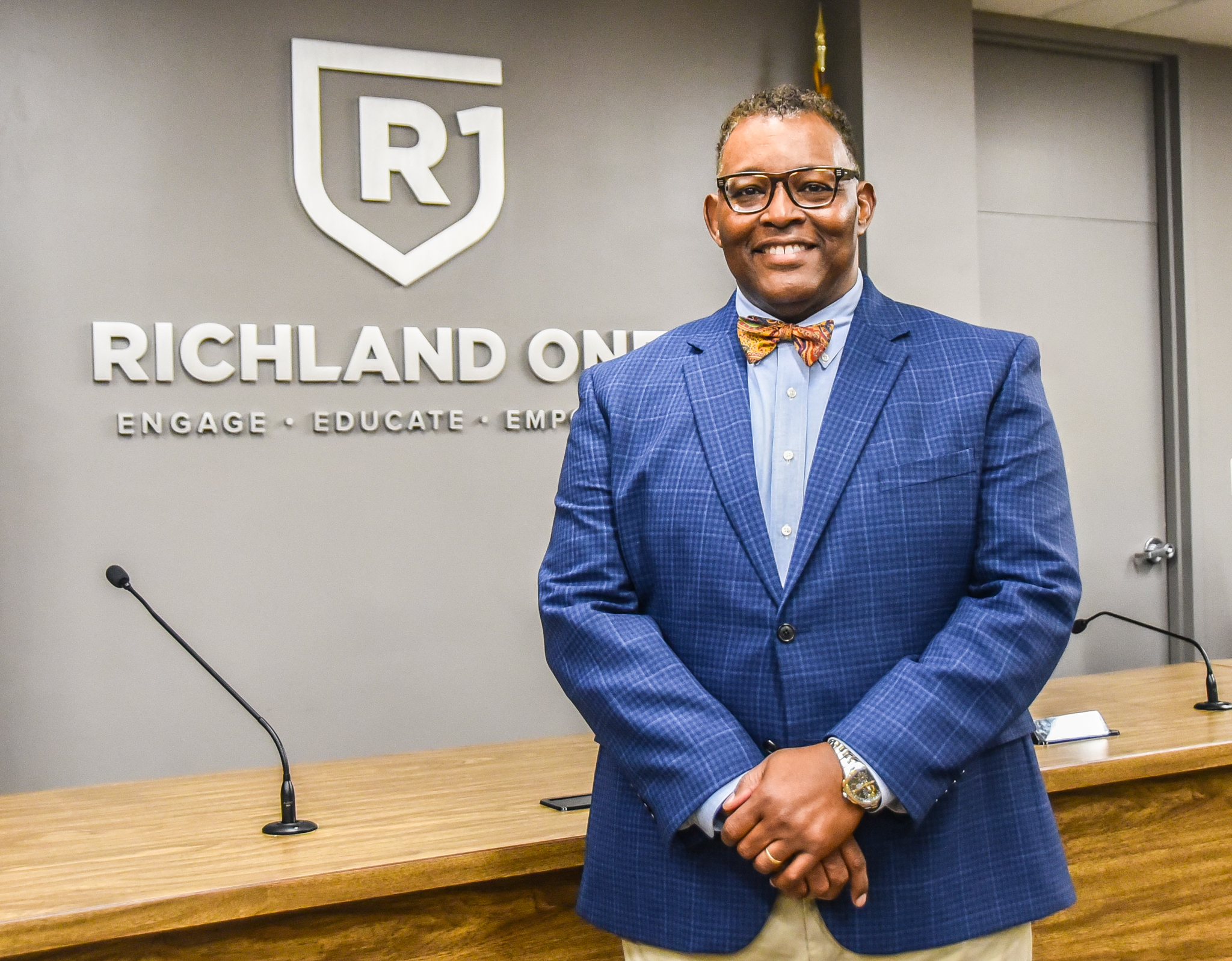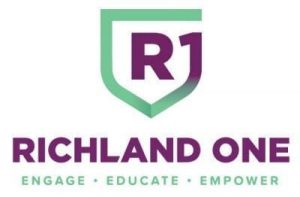Richland One staff spotlight: District’s new ombudsman serves as an advocate for all students
August 5, 2024A graduate of Eau Claire High School and a former teacher and school administrator in the district, Basil Harris has returned to Richland One to serve as the ombudsman.
It’s been about four years since Richland One has had an ombudsman, a district-level staff member whose job is to provide a safe and confidential forum to explore options that will resolve school-level issues and concerns that interfere with teaching and learning and a positive school climate.
Harris has nearly 35 years of experience in education, including working in several positions during his 21 years at the South Carolina Department of Education. He did his student teaching in Richland One, and he was a science teacher for eight years. He later served as an assistant principal and interim principal at W.G. Sanders Middle School.

Basil Harris
Now back in Richland One as the district’s ombudsman, Harris says he wants to make a positive impact on students’ lives.
“I want internal and external stakeholders to see me as an advocate, focusing on what is in the best interest of the child and providing whatever support I can in those areas that have a direct impact on teaching and learning, as well as the students’ social-emotional well-being,” he said. “I want to be a part of ensuring that the students receive the best possible education that they can, just as I was afforded a phenomenal education here in Richland One.”
Some situations students face in school may not always be resolved during a meeting between the principal and the student’s parents or guardians, or even after a meeting between district administrators and the student’s parents or guardians. That’s where the ombudsman steps in.
As ombudsman, Harris said he will take a neutral stance on the issues brought to him. He says he will advocate for what’s in the student’s best interest in a particular situation, while also ensuring compliance with applicable laws, regulations and school board policies.
Before Harris gets involved in addressing an issue, parents and guardians are advised to take a few steps first:
- Contact their child’s teacher regarding academic concerns, attendance, the classroom environment, behavior and discipline, or special accommodations.
- If the student’s parents or guardians believe those issues weren’t resolved during the conversation with the child’s teacher or if they believe the issue concerns something greater, such as school climate and safety, transportation, nutrition services or other staff members, they should contact the principal or assistant principal.
- If the student’s parents or guardians believe that school administrators did not resolve the issue, Harris says they should contact the executive director of their child’s school before contacting him.
“Part of what I envision is to encourage parents to start at the genesis of the situation and then move on up,” Harris said.
He says one of his goals is to collaborate with other departments in Richland One to direct families to the resources they may need.
“For example, with the Parent and Family Engagement office, I would like to gain a greater context about what supports they provide, how they do it and how I could fit into that. Likewise with Nutrition Services, Student Transportation Services, the Hearing Office and the Registrar’s office,” he said.
One of the ways Harris said he would collaborate with other departments is by looking at data on what some of their challenges may be and working with them to come up with solutions. That data could include the number of phone calls a department receives or the types of phone calls made regarding a specific issue.
“If there are a lot of phone calls about a high number of expulsions, for example, I’d have some conversations with the Hearing Office and ask them what I can do to support them in addressing some of these challenges and to minimize those perceptions,” said Harris.
He says some of that data could lead to changes in procedures at individual schools or even district-wide.
Some parents and guardians may not always be aware of what’s going on in their child’s school until there’s an issue. Harris encourages them to be more involved in their children’s lives at school.
“Don’t be involved only when there is an issue or concern; be involved on the positive side as well,” he said. “I encourage parents to come in and see not only what the teachers are doing, but what their child and other students are doing as well, and support the school in ensuring a positive teaching and learning experience for not just for their child but for all students.”
For more information about the ombudsman’s office, click here.




















